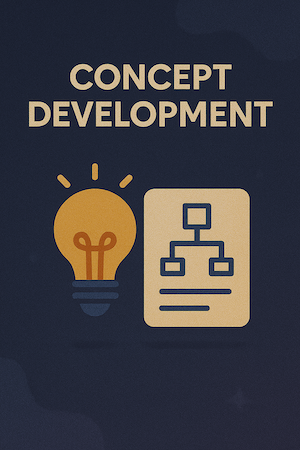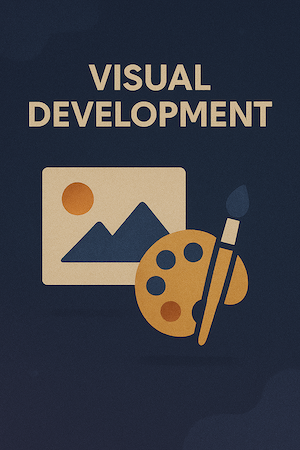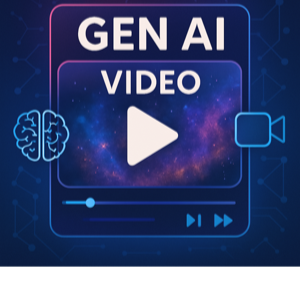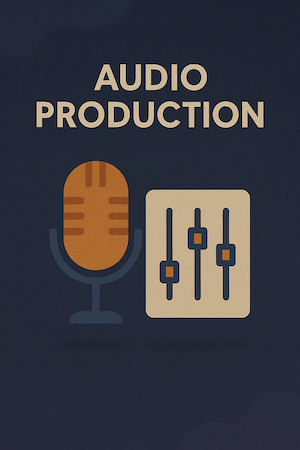AI Movie Creation
Explore how AI is transforming filmmaking with automated script generation, visual effects, and more
The Future of Filmmaking
The landscape of filmmaking is undergoing a revolutionary transformation with the emergence of AI movie creation tools. These sophisticated technologies are empowering filmmakers, content creators, and storytellers to produce cinematic content with unprecedented efficiency and creative possibilities.
What is AI Movie Creation?
AI movie creation refers to the use of artificial intelligence technologies to assist in or automate various aspects of the filmmaking process. This can include everything from script generation and storyboarding to visual effects, editing, and post-production. AI tools are designed to complement human creativity, streamline workflows, and enable new forms of visual storytelling that were previously impossible or prohibitively expensive.
Key AI Movie Creation Tools
Text-to-Video Generation
Runway Gen-3 Alpha
Best for: Mixed-media projects, replacing stock footage or live-action shoots
Runway Gen-3 Alpha offers text-to-video, image-to-video, and AI-powered editing capabilities. It delivers realistic, consistent results with its advanced model and is particularly useful for mixed-media projects where AI-generated videos can replace stock footage or live-action shoots.
Text-to-video and image-to-video capabilities
AI-powered editing features
Delivers realistic, consistent results
Limitation: Video resolution capped at 720p, sometimes produces wonky or unpolished stylized looks
Kling AI
Best for: Filmmakers with larger budgets requiring realistic motion
Kling AI features advanced physics simulation and realistic motion, providing the most realistic physics in any public-facing tool. It's ideal for filmmakers with larger budgets who require highly realistic motion in their projects.
Advanced physics simulation
Realistic motion capabilities
High-quality visual output
Limitation: Credit system and slow render times, cost can be prohibitive
OpenAI Sora
Best for: Creating cinematic sequences with complex movements and interactions
OpenAI Sora creates highly realistic scenes with proper physics and lighting from text prompts. It's particularly effective for creating cinematic sequences with complex movements and interactions.
Cinematic video generation from text prompts
Creates highly realistic scenes with proper physics and lighting
Handles complex movements and interactions
Limitation: Limited availability, potentially high cost
Image Generation for Filmmaking
Midjourney
Best for: Creating realistic shots and concept art for films
Midjourney creates incredibly realistic AI imagery with a powerful user interface that is easy enough for anybody to use. It's perfect for creating realistic shots and concept art for films, with advanced tools like repeaters and in-painting.
Easy to use with powerful user interface
Produces high-quality images
Features advanced tools like repeaters and in-painting
Score: 9/10 for overall quality and usability
Script Development and Pre-production
ChatGPT-4o
Best for: Developing scripts, outlines, treatments, and creative brainstorming
ChatGPT-4o offers advanced language processing for script development, outlining, and research. It provides film student quality writing and comprehensive creative assistance for developing scripts, outlines, treatments, and creative brainstorming.
Advanced language processing capabilities
Film student quality writing
Comprehensive creative assistance
Score: 9/10 for language processing capabilities
Music and Audio for Films
Suno.AI
Best for: Creating original film scores and background music
Suno.AI creates AI-generated music and scores from text prompts. It can create instrumental scores using emotive language, making it perfect for creating original film scores and background music.
Creates AI-generated music and scores from text prompts
Can create instrumental scores using emotive language
High-quality music output
Score: 8/10 for music generation
Voice and Narration
Elevenlabs
Best for: Creating narration, dialogue, and voice-overs for films
Elevenlabs offers text-to-voice conversion with highly realistic results. It provides professional-quality voice-overs in seconds and voice cloning capabilities, making it ideal for creating narration, dialogue, and voice-overs for films.
Text-to-voice conversion with highly realistic results
Professional-quality voice-overs in seconds
Voice cloning capabilities
Score: 9/10 for voice generation
AI Filmmaking Workflow

1. Concept Development and Scripting
Use AI language models like ChatGPT-4o or Claude to brainstorm ideas, develop storylines, and create script drafts. Generate character descriptions, dialogue, and scene settings with AI assistance.

2. Visual Development
Create concept art and storyboards using Midjourney or similar image generation tools. Visualize scenes, characters, and settings before filming or animation.

3. Video Generation
Use Runway Gen-3 or Kling AI to generate video sequences from text descriptions or reference images. Create establishing shots, transitions, or entire scenes using AI video generation.

4. Audio Production
Generate original music scores using Suno or Udio. Create voice-overs and narration with Elevenlabs. Enhance audio quality with AI audio processing tools.
Benefits of AI Movie Creation
Cost Efficiency
AI tools can significantly reduce production costs by eliminating the need for expensive equipment, large crews, or elaborate sets for certain scenes or entire productions.
Time Savings
Tasks that traditionally took days or weeks can now be accomplished in hours or minutes, allowing for faster iteration and production timelines.
Creative Expansion
AI enables filmmakers to realize visions that might have been technically impossible or prohibitively expensive with traditional methods.
Iteration Speed
Filmmakers can quickly test different concepts, styles, and approaches before committing to final production decisions.
Limitations and Considerations
Technical Constraints: Current AI tools still have limitations in resolution, duration, and specific types of complex scenes they can generate effectively.
Artistic Control: While AI provides powerful assistance, maintaining artistic vision and human creative direction remains essential for compelling storytelling.
Ethical Considerations: Questions around copyright, ownership of AI-generated content, and potential displacement of traditional film roles need careful consideration.
Learning Curve: Despite user-friendly interfaces, mastering AI filmmaking tools requires time and practice to achieve optimal results.
Ready to Transform Your Filmmaking Process?
Explore our other guides to AI video creation techniques and tools.